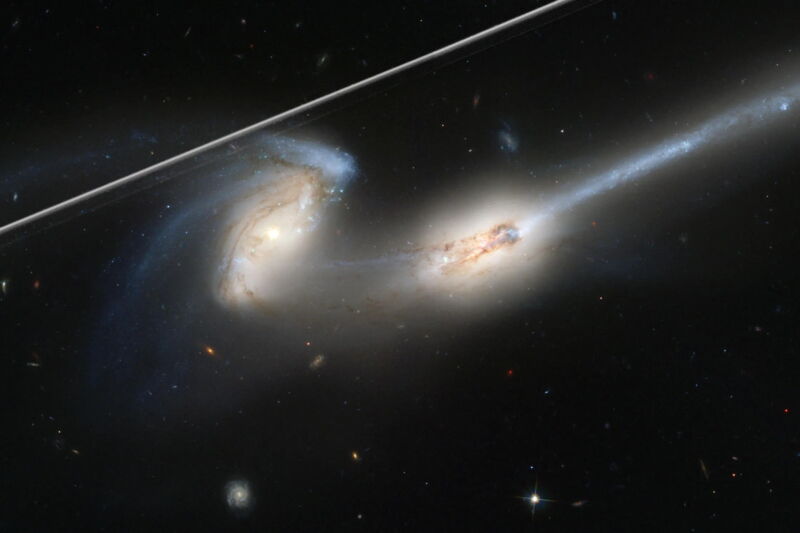
Enlarge / A Hubble image of a pair of colliding galaxies, with a satellite trail running through it. (credit: Space Telescope Science Institute; NASA)
Throngs of satellites are streaking across the Hubble Space Telescope’s field of view, leaving what look like scratch marks on space photos and hindering scientists’ work. Teeming swarms of these satellites, which reflect sunlight and mimic astronomical objects, threaten to gradually transform the night sky and affect how astronomy can be done.
“We see these satellite trails in Hubble data, and really in all astronomical data, and they’re a bit of a nuisance,” said David Stark, an astronomer at the Space Telescope Science Institute in Baltimore, speaking last week at the American Astronomical Society conference in Albuquerque, New Mexico. In fact, he said, his team used a new detection method to measure that the rate of satellite trails is doubling. But Stark was presenting his team’s idea for a Band-Aid fix: new software they described in a recent report that is five to 10 times more sensitive at finding trails than previous software, and then masking them out. “It’s particularly good at finding satellite trails that can be missed by eye,” he said.
Read 12 remaining paragraphs | Comments
